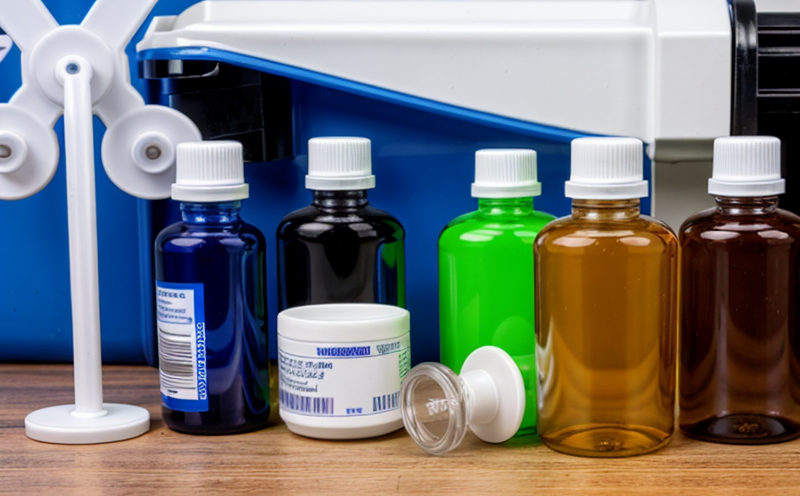ASTM D2974 Moisture and Volatile Matter in Pharmaceutical Waste
The ASTM D2974 standard is a critical tool for assessing moisture and volatile matter content in pharmaceutical waste. This service plays a pivotal role in ensuring compliance with regulatory standards, minimizing environmental impact, and optimizing waste management processes within the pharmaceutical industry.
Pharmaceutical waste can vary widely in composition, from organic solvents to excipients used in drug formulations. Moisture content affects the stability of these materials, while volatile matter can influence storage conditions and potential release into the environment. Understanding these components is crucial for effective recycling processes and reducing landfill contributions.
The ASTM D2974 method involves drying samples at a specified temperature (103 ± 2°C) until constant weight is achieved. The difference between the initial mass of the sample and the final dried mass represents the moisture content, while any further reduction in mass indicates volatile matter content. This straightforward yet precise procedure allows for accurate quantification of both parameters.
For pharmaceutical waste streams, this test ensures that only stable materials are recycled or incinerated. By accurately determining moisture and volatile matter levels, facilities can optimize their waste management strategies to achieve higher recycling rates while minimizing harmful emissions. This not only supports sustainability goals but also enhances the overall efficiency of manufacturing operations.
The precision and accuracy provided by ASTM D2974 make it an indispensable part of compliance programs aimed at reducing hazardous waste generation. Regulatory bodies like the U.S. Environmental Protection Agency (EPA) often require such analyses to ensure that pharmaceutical manufacturers adhere to best practices in waste treatment and disposal.
Incorporating ASTM D2974 into routine testing protocols helps facilities meet stringent environmental standards while improving operational efficiency. By providing detailed insights into the composition of pharmaceutical waste, this service enables informed decision-making regarding waste handling and disposal methods, ultimately contributing to more sustainable practices across the industry.
Benefits
The implementation of ASTM D2974 Moisture and Volatile Matter in Pharmaceutical Waste testing offers numerous benefits to quality managers, compliance officers, R&D engineers, and procurement teams. Here are some key advantages:
- Enhanced Compliance: Ensures adherence to international standards such as ASTM D2974, which is widely recognized by regulatory bodies.
- Improved Efficiency: Optimizes waste management processes, leading to reduced costs and increased recycling rates.
- Environmental Impact Reduction: Minimizes the environmental footprint by accurately quantifying moisture and volatile matter content in pharmaceutical waste.
- Sustainability: Supports long-term sustainability goals through optimized resource use and reduced landfill contributions.
- Risk Mitigation: Identifies potential risks associated with improper handling of hazardous materials, ensuring safer disposal practices.
- Informed Decision-Making: Provides comprehensive data to guide strategic waste management decisions based on real-world test parameters and specimen preparation methods.
International Acceptance and Recognition
The ASTM D2974 standard is highly regarded internationally due to its robust methodology for measuring moisture and volatile matter in pharmaceutical waste. Its acceptance by various regulatory bodies makes it a preferred choice for ensuring compliance across different countries.
In Europe, the European Commission recognizes ASTM standards as harmonized standards under EU law, enhancing their credibility within the region. Similarly, the U.S. Environmental Protection Agency (EPA) frequently cites ASTM D2974 in its guidelines and policies regarding waste management practices.
By adhering to this international standard, pharmaceutical companies can ensure that their operations meet global expectations for environmental responsibility and regulatory compliance. This recognition extends beyond individual countries; it fosters a consistent approach to waste testing worldwide, promoting best practices across industries.
Environmental and Sustainability Contributions
The ASTM D2974 Moisture and Volatile Matter in Pharmaceutical Waste service contributes significantly to environmental sustainability by providing accurate data that informs more efficient waste management strategies. By accurately quantifying moisture and volatile matter, this testing ensures that only stable materials are recycled or incinerated, thereby reducing the volume of hazardous waste sent to landfills.
This approach not only lowers greenhouse gas emissions but also conserves natural resources by reusing valuable components from pharmaceutical products. Additionally, it supports circular economy principles by promoting a closed-loop system where waste is converted into new raw materials or energy sources.
Furthermore, the precision of ASTM D2974 testing helps facilities identify opportunities for process improvements and innovation in recycling technologies. This continuous improvement cycle fosters a culture of sustainability within organizations, aligning them with broader global efforts to combat climate change and protect ecosystems.





